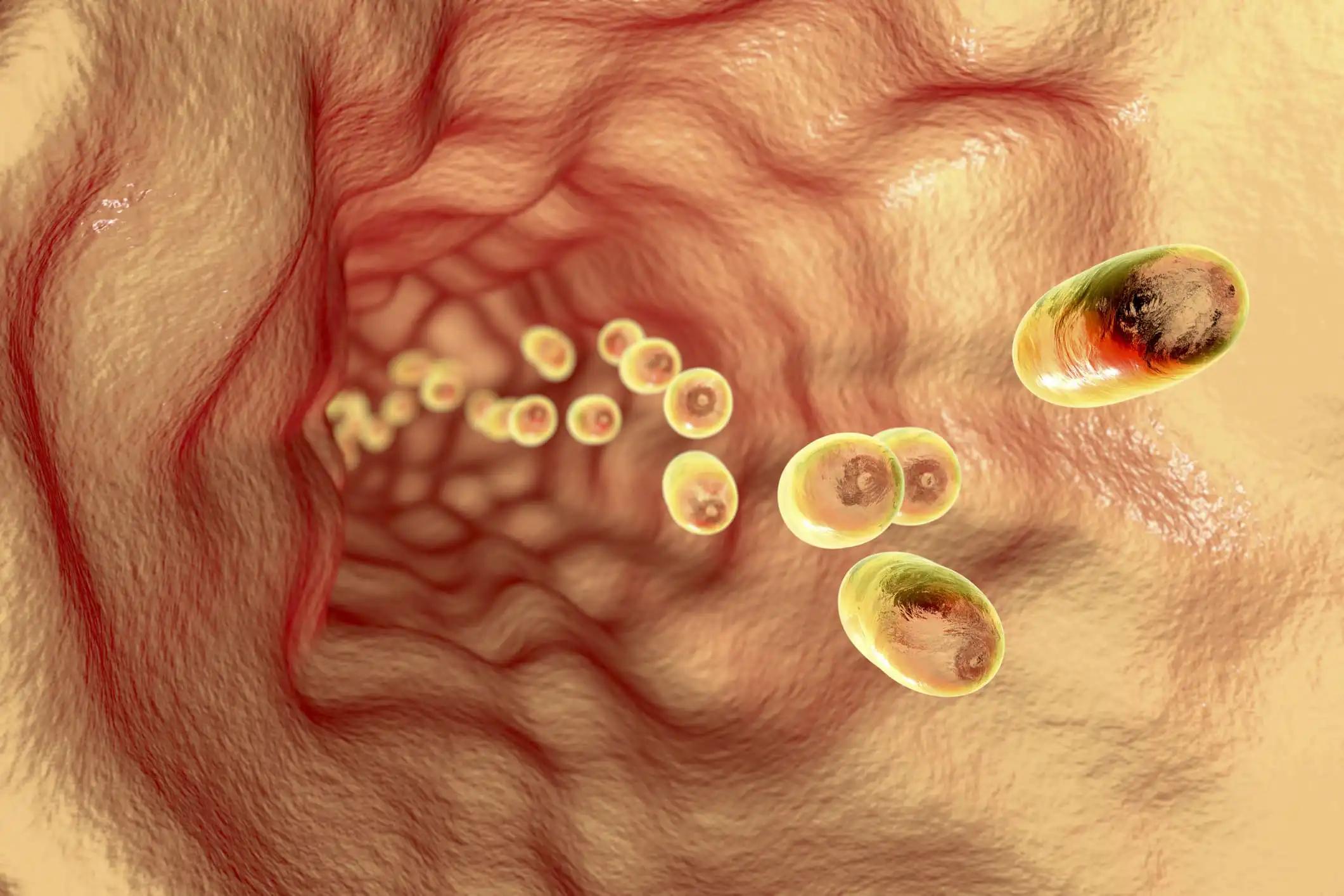KEY TAKEAWAYS
- The study aimed to investigate adding hyaluronidase to improve chemotherapy delivery in EGC after prolonged anti-angiogenesis.
- Researchers noted that HA’s mechanical barrier causes resistance, and PEGPH20 could improve EGC treatment outcomes.
Long-term anti-angiogenesis leads to pruned vasculature, densely deposited extracellular matrix (ECM), and consequently reduced chemotherapy delivery in esophagogastric cancer (EGC).
To address this issue, Dajia Liu and the team aimed to evaluate the efficacy of adding a hyaluronidase or a NO-donor to the regimen of chemotherapy and anti-angiogenic drugs.
They performed an inclusive analysis using a patient-derived EGC xenograft model. Grafted mice were randomly assigned to four experimental groups and one control group. The experimental groups received DC101, a murine angiogenesis inhibitor, and nab-paclitaxel (NPTX), with the addition of hyaluronidase (PEGPH20), NO-donor (nitroglycerine, NTG), or their combination, respectively.
Tumor growth was compared over 17 days of treatment. Immunohistochemistry was conducted to assess ECM components hyaluronan (HA) and collagen, CD31 for endothelial cells, and γH2AX for DNA damage. Positive staining areas were quantified, and vessel diameters were measured using QuPath software.
About the results, prolonged DC101 treatment induced deposition of HA (P < 0.01) and collagen (P < 0.01). HA was effectively degraded by PEGPH20 (P < 0.001), but not by NTG as expected. Both PEGPH20 (P < 0.05) and NTG (P < 0.01) dilated vessels collapsed in response to long-term DC101 treatment. However, only PEGPH20 (rather than NTG) was found to significantly inhibit tumor growth (P < 0.05) in combination with NPTX and DC101.
The study concluded that the mechanical barrier of HA is a major factor in the resistance observed during prolonged anti-angiogenesis in EGC. Incorporating PEGPH20 into the existing treatment regimen is promising for improving outcomes for patients with EGC.
The study is funded by the State Scholarship Fund from the Chinese Scholarship Council.
Source: https://pubmed.ncbi.nlm.nih.gov/39106708/
Liu D, Guo L, Waasdorp C, et al. (2024). “Hyaluronidase improves the efficacy of nab-paclitaxel after prolonged angiogenesis inhibition in preclinical models for esophagogastric cancer.” Biomed Pharmacother. 2024;178:117261. doi:10.1016/j.biopha.2024.117261



